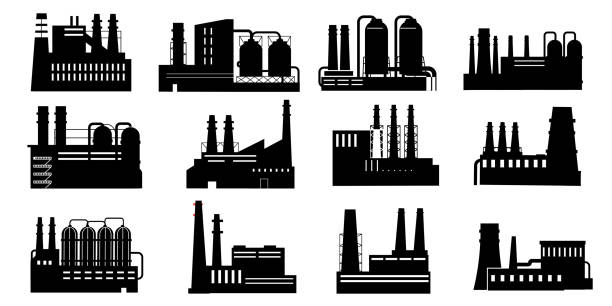Chemical industries play an important role in our economy. They are responsible for creating products that we rely on every day, from food to clothing to plastics. And with so many Chemical industries jobs available in these industries, it can be difficult to decide which one is right for you.
In this blog post, we will explore how many jobs are available in chemical industries and help you determine which one may be the best fit for you. From engineering to production, read on to learn more about what’s available and where you can start your career journey.
also read: how many jobs are available in basic industries
Chemical industry overview
Chemical industries are one of the most promising and growing job markets in the United States. In 2010, the chemical industry employed 1.5 million workers and is projected to grow by 9% over the next decade. This growth is attributable to a number of factors, including increasing demand for new chemicals and products, an aging population, and increases in energy production.
There are many different types of jobs available in chemical industries, including production workers, scientists and engineers, marketing professionals, and management positions. Production workers produce products using manufacturing processes. Scientists and engineers work on projects related to the development or use of chemicals. Marketing professionals develop and market products to consumers. Management positions include those in operations, finance, marketing, research and development (R&D), and sales.
The majority of chemical industry jobs are located in states with large economies (like Texas and California). However, there is also a great deal of opportunity available in smaller towns and rural areas throughout the United States. Although some entry-level occupations may require a college degree, many other positions do not require formal training or a college degree at all. Instead, most chemical industry jobs require skills that can be learned on the job. As long as you have a degree in something related to chemistry or another science-based field, you should have no trouble finding a position that matches your skillset.
also read: how many jobs are available in diversified commercial services
Types of chemical industries
Chemical industries employ over 1.5 million people in the United States. The chemical industry is made up of a variety of businesses that produce a wide range of products, including plastics, pesticides, and pharmaceuticals.
The chemical industry has many different types of jobs available, including:
-Production workers: These workers make products by mixing chemicals and other materials together to create new products. Production workers may be working on production lines or in laboratories.
-Research and development (R&D) workers: R&D workers work on new ways to create products or improve existing products. They may study plants or animals to learn more about how they function, or they may develop new methods for manufacturing products.
-Operations managers: Operations managers are responsible for the day-to-day operations of a company’s chemical plants or laboratories. They are responsible for hiring and firing employees, setting budgets, and making sure that the plants or labs run smoothly.
Chemical manufacturing
Chemical manufacturing is a $1 trillion industry that employs more than 150 million people globally. The U.S. chemical industry is the world’s largest single producer of chemicals and materials, and plays a vital role in promoting economic growth and innovation. Chemical manufacturers create products used in everything from plastics to pharmaceuticals to airplanes.
The chemical industry is diverse, with companies producing a wide range of chemicals including petrochemicals, polymers, agricultural chemicals, and commodity chemicals. Manufacturing processes vary considerably from company to company, but most chemical plants typically involve three stages: production (mixing raw materials together), processing (turning the mixture into products), and waste management (discarding or recycling unwanted materials).
The Bureau of Labor Statistics reports that about 121,000 jobs are available in the chemical manufacturing sector as of May 2017. The highest-paying jobs in chemical manufacturing typically require advanced degrees in engineering or science, but many entry-level positions also exist. As the global economy shifts towards automation and robots become increasingly sophisticated, many workers in the chemical industry may soon find themselves at risk of losing their jobs.
Environmental chemical technologies
There are many environmental chemical technologies that are in high demand. Chemical companies are always looking for new ways to reduce costs and increase efficiency. This means there are a lot of jobs available in the environmental chemical industries.
Some careers that may be interested in include:
-Chemical Engineer
-Scientist
-Process Engineer
-Technical Officer
Occupational safety and health in the chemical industry
The chemical industry is one of the largest and most diverse in the United States. The Chemical Industry Institute (CIA) reports that employment in chemical industries will grow by 9 percent through 2024. This is good news for those looking for job security, as well as those who want to pursue a career in a rapidly growing field.
The demand for skilled chemists and other workers in the chemical industry has led to a shortage of employees. According to Indeed, the number of jobs available in chemical industries is expected to exceed 500,000 by 2020. In addition, the Bureau of Labor Statistics (BLS) reports that there are currently more than 1 million job openings across all STEM disciplines, including chemistry.
If you’re interested in pursuing a career in the chemical industry, be sure to have a strong degree in science or engineering. Many companies require candidates to have a Bachelor’s degree or higher. However, many entry-level positions do not require a degree at all. If you don’t have a degree yet, no problem! There are plenty of programs designed specifically for people without degrees who want to be chemical engineers or chemists.
Once you have your degree and are ready to enter the workforce, make sure you research occupational safety and health (OSHA) requirements for the industry you want to work in. OSHA requires employers to provide workers with safe working conditions and proper precautions when handling chemicals. Make sure you know what hazardous materials your specific workplace
Economic impact of the chemical industry
The chemical industry is a vital part of the U.S. economy, employing more than 720,000 people nationwide. The sector accounted for $116 billion in economic activity in 2016.
The chemical industry makes products that help us live better and healthier lives, from food and cosmetics to medicines and fabrics. It also plays an important role in manufacturing products that we use every day, from cars and clothes to electronics and appliances.
Chemical companies work with scientists to develop new products, and they often partner with other companies to produce those products. For example, Bayer AG produces aspirin using ingredients made by Goldschmidt AG . This kind of cross-collaboration creates thousands of jobs across the country.
The chemical industry has a strong labor force because it hires highly skilled workers. Employees in this sector have degrees in chemistry or engineering, which gives them the skills necessary for a variety of jobs. In addition, many chemical companies have apprenticeship programs that provide young people with training in their field.
The benefits of the chemical industry go beyond jobs: Products like paints and lubricants help keep our homes clean and our cars moving smoothly; medical treatments are developed using chemicals; plastics are essential to our lifestyle; and adhesives keep our electronic goods Shopping
Future of the chemical industry
Chemical industries are projected to grow by about 10% over the next ten years, creating approximately 1.4 million new jobs. The chemical industry is one of the most diverse and dynamic in the United States, with products used in everything from agriculture to cleaning products. This growth is due in part to increasing demand for environmentally friendly products and new technologies that allow for greater production of chemicals with fewer emissions.
Production workers make chemicals using traditional methods such as distillation or oxidation. Manufacturing workers produce chemicals on a large scale using modern automated processes. Jobs in research and development are also growing fast, as companies invest in new ways to create products and improve efficiency.
There are many opportunities for people who want to work in the dolls in pakistan industry. Many companies also conduct short-term placements for newly minted chemists. So they can get a feel for what it’s like working within the company before making a permanent commitment.
Conclusion
There are many jobs available in Chemical industries, and with the right qualifications, you could find yourself employed in a variety of positions. If you’re interested in finding out more about what’s available in Chemical industries, or if you want to explore your career options further, speak to an occupational therapist or recruiter.
They can help you identify the specific skills and experience that are most relevant to the chemical industry.




